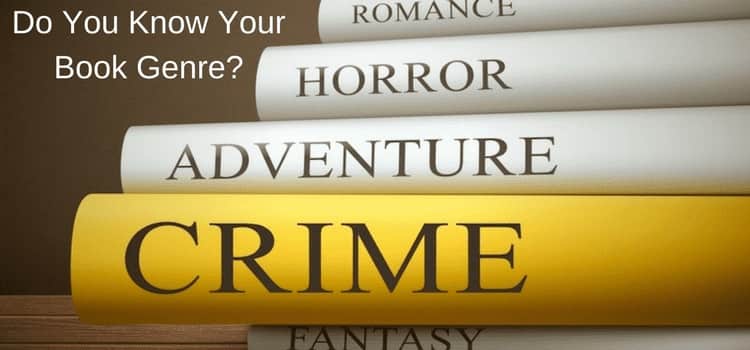
This blog concentrates a lot on the technical aspects and marketing side of self-publishing. However, the choice of your book genre can have major implications on both your writing and book marketing.
There can be many reasons why a book fails to grab readers.
Writers often start writing a novel without giving their end product much thought. So, when it is finished, it might be difficult to find a precise category or genre for it when it comes time to publish.
Different genres or kinds of books attract a distinct target audience.
What genre is your book?
Make sure you list your new book in its correct genre.
Finding where your book fits is a key decision. You might consider that your book is historical fiction. But does it involve a love story? It might be romance then, or a little bit of both.
Is your book nonfiction or realistic fiction? Perhaps a fairy tale, or is it medieval fantasy? Urban fantasy or women’s fiction? Is it middle grade or young adult?
Readers usually have favorite popular genres, so placing your book where they can find their type of book has huge advantages.
I read a post on Kristen Lamb’s excellent blog recently.
She goes into great depth about how to define and choose a literary genre before starting to write a book.
You could even apply these descriptions to a short story.
In my mind, the advice in her post helps solve two problems at once.
It gives clarity when writing works of fiction and then simplicity when it comes time to publish.
Making the right decision about your book’s genre will also help you if you want to pitch your book to an agent or publisher.
General book genres
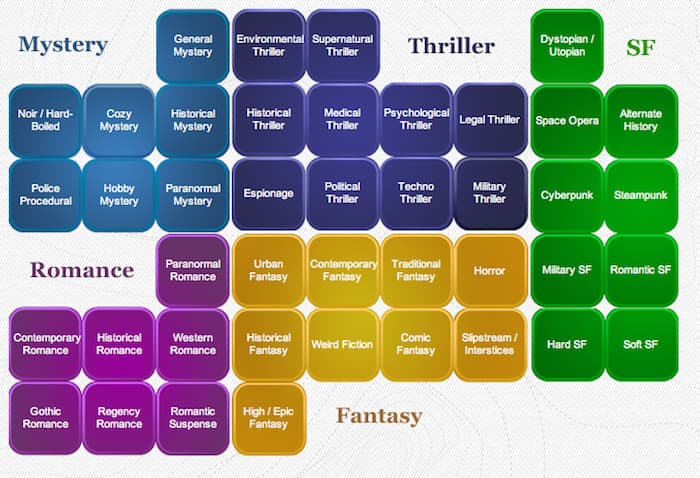
I won’t reprint the complete article, Choosing a Genre—Anatomy of a Best-Selling Story, which you should read.
But I will quote a small chunk of the post, where she explains with absolute clarity what the major genres of fiction books represent and what readers expect from the main character and the plot.
Mystery
– often begins with the crime as the inciting incident (murder, theft, etc.), and the plot involves the protagonist uncovering the party responsible by the end. The crime has already happened, and thus your goal in plotting is to drive toward the Big Boss Battle—the unveiling of the real culprit.
Mysteries have a lot more leeway to develop characters simply because, if you choose, they can be slower in pacing because the crime has already happened. They run roughly 75-100,000 words.
On the cozy mystery side, which is often in a series are commonly shorter at 60,000-ish. I’d recommend that you consult the Mystery Writers of America for more information.
Thriller/Suspense
– generally involve trying to stop some bad thing from happening at the end. Thrillers have broad consequences if the protagonist fails—I.e., the terrorists will launch a nuclear weapon and destroy Washington D.C. Suspense novels have smaller/more intimate consequences.
I.e., The serial killer will keep butchering young blonde co-eds. It is easy to see how thriller, suspense, and mystery are kissing cousins and keep company. The key here is that there is a ticking clock, and some disastrous event will happen if the protagonist fails.
So when plotting, all actions are geared to prevention of the horrible thing at the end. Thrillers can run 90-100,000 words (loosely) and sometimes a little longer. Why?
Some thrillers need to do world-building. Most of us have never been on a nuclear sub, so Tom Clancy had to recreate it for us in The Hunt for Red October (Clancy invented a thriller sub-class known as the techno-thriller).
Pick up the pacing, and you can have a Mystery-Suspense. Think Silence of the Lambs.
A murder happens at the beginning, and the goal is to uncover the identity of the serial killer Buffalo Bill (mystery), but what makes this mystery-suspense is the presence of a ticking clock.
Not only is the body count rising the longer Buffalo Bill remains free, but a senator’s daughter is next on Bill’s butcher block.
When plotting, there will often be a crime (murder) at the beginning, but the plot involves a rising “body count,” and a perpetrator who must be stopped before an even bigger crime can occur (Big Boss Battle).
These stories are plot-driven. Characters often do not have enough down-time to make sweeping inner arc changes like in a literary piece.
Pick up the pacing and raise the stakes, and you have a Mystery-Thriller. Think Killing Floor by Lee Childs.
The book begins with the murder of two unidentified people at a warehouse, but if the killers are not found, what the killers are trying to cover up will have global consequences.
And I am not telling you what those consequences are b/c it would ruin the book :D.
When plotting, again, there is often a crime at the beginning with rising stakes, and the protagonist must stop a world-changing event from happening (Big Boss Battle). The focus of your plot will be solving the mystery and stopping the bad guy.
For more information on this genre, consult the International Thriller Writers site.
Romance
– Guy and girl have to end up together, in the end, is the only point I will make on this. Romance is all about making the reader believe that love is good and grand and still exists in this world.
The hero cannot be your Big Boss Trouble Maker (read Structure Part Three if you want to know what a BBT is). Yes, the guy will likely be a scene antagonist, but that is different.
Romance, however, is very complex, and I cannot do it justice in this short blurb. If you desire to write romance, I highly recommend you go to the Romance Writers of America site for more information and that you join a chapter near you immediately.
This is one of the most amazing writing organizations around and a great investment in a successful romance-writing career.
Word count will depend on the type of romance you desire to write. Again, look to RWA for guidance because there are SO many categories of romance that it could make a book.
Literary Fiction
– is character-driven. The importance is placed on the inner change, and the plot is the mechanism for driving that change. Literary fiction has more emphasis on prose, symbol, and motif.
The events that happen must drive an inner transformation.
Pulitzer Prize-winning book, The Road is a good example. The world has been destroyed, and only a few humans have survived.
The question isn’t as much whether the man and the boy will survive as much as it is about how they will survive. Will they endure with their humanity intact? Or will they resort to being animals?
Thus, the goal in The Road is less about boy and man completing their journey to the ocean and more about how they make it. Can they carry the torch of humanity?
When plotting for literary fiction, one needs to consider plot points for the inner changes occurring.
There need to be crossroads of choice. One choice ends the story. The character failed to change. The other path leads closer to the end.
The darkest moment is when that character faces that inner weakness at its strongest, yet triumphs.
For instance, in The Road, there are multiple times the man and boy face literally starving to death. Will they resort to cannibalism as many others have? Or will they press on and hope?
Word count can vary, but you should be safe with 60-85,000 words (The Road was technically a novella).
Note: Literary fiction is not a free pass to avoid plotting. There still needs to be an overall plot problem that forces the change.
People generally don’t wake up one day and just decide to change. There needs to be an outside driving force, a Big Boss Troublemaker, and a tangible physical goal.
Again, in The Road, the man and boy have a tangible goal of getting to the ocean.
The only difference between literary fiction and genre fiction is that plot arc is now subordinate to character arc. In commercial genre fiction, the plot generally takes precedence.
In Silence of the Lambs catching Buffalo Bill is top on the priority list. Character evolution is secondary. In literary fiction, these two arcs reverse. The character growth and change are of primary importance, and the plot is merely the vehicle to get them to change.
For instance, in Joy Luck Club, June’s impending trip to China is what brings the women together and forces each of them to change the patterns of the past.
The trip is irrelevant save for two purposes—1) bringing the women together to face their demons and 2) when June actually makes the trip to China to meet her mother’s twin sisters (the lost babies), we know the change has occurred, and the chains of the past have been loosed.
Fantasy and Science Fiction
– will involve some degree of world-building and extraordinary events, creatures, locations. In plotting, world-building is an essential additional step.
How much world-building is necessary will depend on what sub-class of fantasy or sci-fi you’re writing. Word count will also be affected.
The more world-building, the longer your book will be. Some books, especially in high-fantasy, can run as long as 150,000 words and are often serialized.
In regular fantasy, we will generally have a singular protagonist. In high fantasy, the various parties each become protagonists. Think Game of Thrones or Lord of the Rings.
Consult the Science Fiction and Fantasy Writers of America for more information.
Horror
This is another genre that breaks down into many sub-classifications and runs the gambit.
It can be as simple as a basic Monster in the House story, where the protagonist’s main goal is SERE-Survive Evade, Rescue, and Escape. The protag has only one goal… to survive. These books tend to be on the shorter side, roughly 60,000 words.
Horror, however, can blend with fantasy and require all kinds of complex world-building. Clive Barker’s Hellraiser is a good example. Stephen King’s horror often relies heavily on the psychological, and there is a weighty focus on an inner change/arc.
For instance, The Shining chronicles Jack’s descent into madness and how his family deals with his change and ultimately tries to escape the very literal Monster in the House.
Horror will almost always involve a Monster in the House scenario. It is just that the definitions of “monster” and “house” are mutable. Word count is contingent upon what type of horror you are writing.
Young Adult
I won’t talk long about YA since YA breaks into so many subcategories. Often YA will follow the rules of the parent genre (i.e., YA thrillers still have a ticking clock, fast pacing, and high stakes just like regular thrillers).
The difference, however, is that YA generally will have a younger protagonist (most often a teenager) and will address special challenges particular to a younger age group.
For instance, in Veronica Roth’s Divergent, Tris is taking on a very real political battle between factions.
But the plot also involves her evolving from child to adult, how she defines her identity aside from Mom and Dad, and forging a new romantic relationship with Four. These are all prototypical struggles for someone in that age group.
Pick your genre
Picking a genre is actually quite liberating.
Each genre has unique guideposts and expectations, and once you gain a clear view of these, plotting becomes much easier and faster.
You will understand the critical elements that must be in place—ticking clock, inner arc, world-building—before you begin.
This will save loads of time not only in writing but in revision.
I hope this list will help you when it comes time to write your next book, and I highly recommend that you bookmark Kristen’s blog and regularly revisit it, as her advice on writing is always extremely helpful.
Average Novel Word Count by Genre
There is no hard and fast rule governing the word count of specific genres.
However, there are generalizations that you can use as a guide.
Without a doubt, an epic fantasy will be much longer than a self-help book.
To give you a rough guide, you can refer to the graph below.
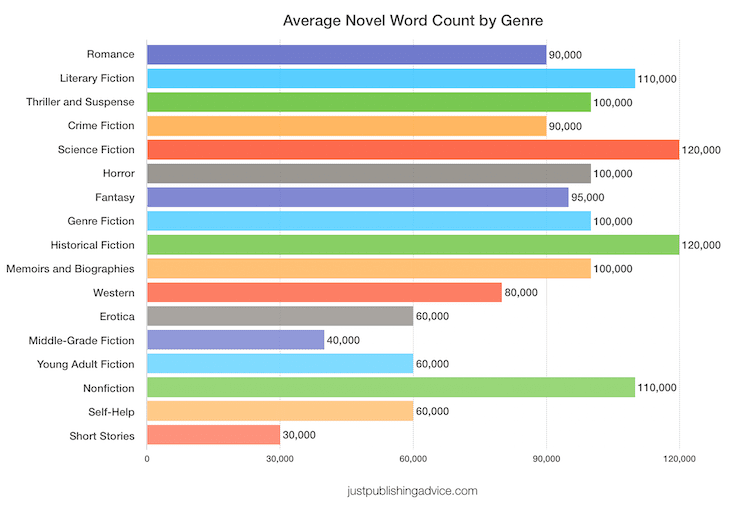
These numbers are certainly not set in concrete.
They only serve as a guide to what readers might expect from a book in a specific genre.
Related Reading: How Many Words In A Novel? It Usually Depends On Your Genre
Share This Article
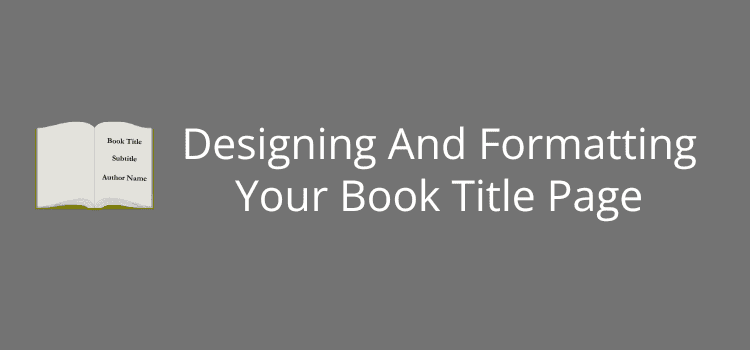
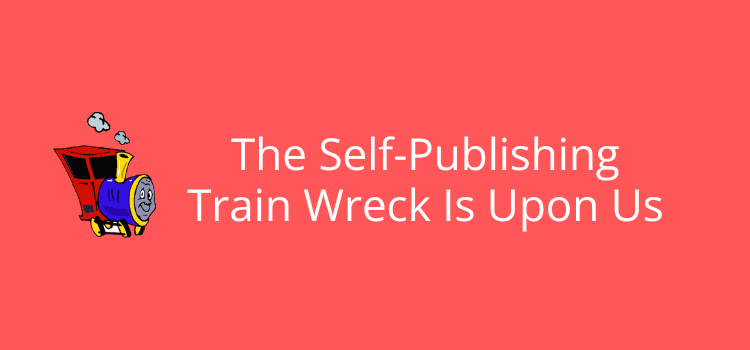
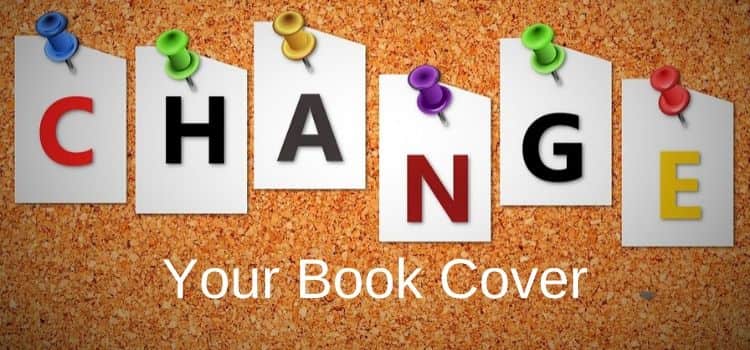
Very useful article and precise, kept me Re-think about the genre in my mind.
Keep it coming.
I loved this article! It definitely got me thinking about my book that I’m writing… Mine could fall into the Comic Fantasy category, but also Military Thriller. Would the ¨mixed genre¨ make my book harder to publish/ sell?
Thanks for the wonderful information.